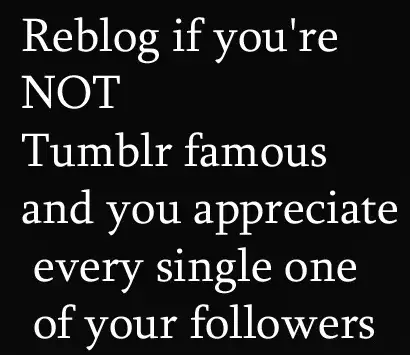Note
I'm sorry, we're not. Stories are powerful communication tools. Someone's communicating a really pretty, really expertly-crafted lie about the most important thing in existence, which is the God who is Love. So it's kind of...that deep. If I'm wrong, that's important. If I'm right, that's important. It's an important topic.
And just by-the-by...you realize "being Jewish" doesn't mean Rebecca Sugar is incapable of being anti-God, right? Do you know anything about the Jewish or Orthodox Jewish relationship to Christianity and the God of the Bible? Please look that up, or read my responses to others who keep displaying their lack of understanding by bringing up this same thing, if you haven't already, before coming and talking to me.
Or figure out how to communicate how Steven Universe is not communicating anything about God 🙄 I've already given my evidence. Where's yours for the contrary?
“At least it's not ferociously attacking God quite as directly as Steven Universe did…”
Not that I’m surprised by this statement, but can you elaborate on this? Kinda intrigued by your thoughts on Steven Universe.
Okie dokie, you’re not the only one who has asked me about this, so I suppose I’ll poke the hornet’s nest. 😅 I haven’t talked about this before because I assumed that everyone who wanted to hear my kinds of opinions on stories wasn’t watching or interested in Steven Universe.
It’s like asking vegetarian if they enjoyed a turkey dinner. The turkey dinner was so obviously not made for vegetarians to enjoy, so why would the vegetarian even bother analyzing the turkey?
But I think if some people are asking me why I think Steven Universe is anti-God (of the Bible) its because maybe they don’t know what the turkey is. Not completely. (Maybe not you, because like you said, you’re not surprised by my comment.) So I’ll explain my thoughts on Steven Universe.
If you’re just following me because you liked some stuff I posted, but didn’t realize that I’m a Bible-believing Christian and don’t want to hear about it, unfollow me now.
Because I’m going to talk about some hot button issues here and the trolls will come out.
Steven Universe is really well-done. The jokes are funny, the writing is believable, the characters have great chemistry, great design, the concept is fascinating, the slow build-up and reveal of the plot elements is great.
But when you watch the throne room scene in the last episode of Season 5 “Change Your Mind,” it’s alarmingly clear how much the whole show is not just settling for defending and championing the LGBTQ+ worldview—it goes all the way to attacking what Christians believe, on the other side.
Anything that’s pro-LGBTQ+ is doing that by default, but this show goes out of its way to do that.
You have to understand: God created and designed us. Deeper than that; He created and designed romantic relationships, and invented marriage. He didn’t just create love—He is love. So when humans come along and do what we’ve always done since the fall, and say, “I’d rather define what Your thing is and how it works for myself, God,” it’s not only an incredible slap in the face, it’s an attack on God’s actual identity—and it’s destructive for us and the people around us. Like a fish insisting it can breathe oxygen.
But Steven Universe goes beyond that. It knows that the Christian worldview is it’s biggest opposition. It digs right down to the heart of the worldview-battle.
LGBTQ+ worldview says, “I should get to love what I want and be who I am, because I’m me. Love is love. (By which I mean, any action or relationship I choose to call love is love, because I’m the one calling it that.)”
Biblical worldview says “No, wait, you shouldn’t base your decisions on you alone; what you want changes day to day, and you’re broken, so you can’t ever be satisfied based on what you want—the Bible says God made you for something, and you rejected that, and it broke you. You’re not how you’re meant to be: even what you want and what you think love is is twisted up and can hurt you and others. But if you submit to God He’ll help you, He’ll fix what’s broken and give you new life by making you how you were supposed to be: He’ll live in you and through you.”
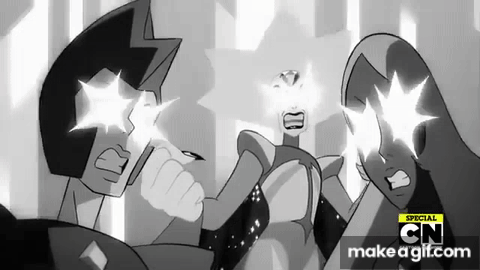
Are we beginning to get the picture?
See, the whole thing with the opposing views between LGBTQ+ and Christian people is as old as time. It’s not a new debate. It’s Satan and Eve in the garden. She says, “This is not how God said things should be,” and Satan says, “Are you sure that’s what He said? He knows if you do this thing, you’ll be like Him. You’ll be god: you’ll get to decide ‘how things should be’ for yourself.”
He lied and said that disobedience would satisfy her. That she knew what her own heart needed better than the God that made it did. That the very act of being imperfect would make her godlike.
And then Steven Universe comes along and says “if every pork chop were perfect, we wouldn’t have hotdogs.”
And has a cast of created being characters who’s imperfections (Garnet’s forbidden “love,” Pearl’s obsession, Amethyst’s insecurity) are supposedly “the best thing about them; what makes them who they are.”
And has a main character who used to be a part of the god-like creator relationship, but used her power to come down to earth and completely change who she is into a fully different person.
And has a godlike Creator character who claims she “doesn’t need” her created beings (just like the God of the Bible) but they all have a little part of their creator in them so she has to repress their imperfections; she holds them all to a standard that’s impossible to reach called “perfection” and punishes them when they don’t meet it even though it hurts them to try; she expects them all to do what they were created by her for; she fixes them when they can’t meet her standard by shining her light through them and making them extensions of their Creator.
And has a main character who argues, fights back, tries to stop her, and is answered with lines that sound surprisingly like what LGBTQ+ people hear when Christians argue with them: “you’re only making things worse; you’re just deceiving yourself; even while you resist it your actual light can’t help shining through,” etc.
White Diamond just wants everything to be perfect. Like her. She just wants her created beings to “be themselves.” But what she means is, be how she created them to be.
And she’s the bad guy. She’s playing God in this show, and Rebecca Sugar is saying, “If God is telling us that can only be happy by being perfect, as He is perfect, and doing what He created us to do, then He’s wrong. Our imperfections are what make us special—unique—individuals—free—and there is nobody who has the right to take that freedom away from us, not even out creator!”
And you know what?
If God were like White Diamond, like Rebecca Sugar believes Him to be, Steven Universe would be right.
But He is NOT.
God is not a dictator who forces us to conform to a standard of perfection and then smashes us when we don’t meet it. He is a King who made us perfect to begin with, and we rejected him, because He allowed us to do that. He knew that true love was love that had to be chosen, and He wanted us to love Him by choice, so he gave us the option. But Rebecca Sugar doesn’t understand—there was never “Choose God or Choose Yourself.” There was only, “Choose God or Choose Nothing.” There was nothing except God. Then He created everything. There is no version of reality where you have something better than God, or even slightly less good but different, to pick. You’re not jumping from one ship into a smaller one, but at least it’s yours—you’re jumping from one ship into a void, and then complaining that there’s no other ship. That’s humans. That’s not God. / White Diamond didn’t make her creations perfect (Amethyst) and she didn’t make them for love. She made them for power. That’s not the God of the Bible.
Even when we did choose to try and love ourselves instead of God, and therefore warped our ability to perfectly love at all, He didn’t smash us. True, everything fell and was cursed, which is exactly what He warned us would happen if we chose it, but it was a natural consequence of breaking ourselves. And then He didn’t leave us that way. He didn’t give up on us. And He certainly didn’t just zap us, snap His fingers, quick-fix it and turn us all into robots who are extensions of Him, who say they love Him but only because it’s His voice puppeting us to say it.
No. He came to us, chose to give up His life at the exact point on the timeline when Romans, masters in the art of slow, humiliating, torturous death, would be the ones to carry out His crucifixion, and saved us Himself. Through the sacrifice of His own life. And even then, we still have a choice. We get to choose to accept that incredible self-sacrifice when we don’t deserve it, and be given new life and a relationship with the Creator who knows us and loves us better than we can love ourselves or receive love from others—OR we can just keep stubbornly insisting that our slavery to the opposite of what God wants is somehow freedom, and our twisted versions of love are genuine, and we’re not broken, and die like that. Die broken creatures who lived their whole lives stomping their feet and screaming “I’m not a creature, I’m a god!”
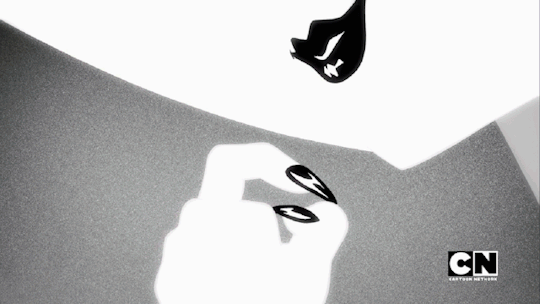
White Diamond sacrifices nothing, because Rebecca Sugar doesn’t know the God of the Bible. She just knows her idea of Him. She’s never actually gotten to know Him. If she had, she’d learn how silly and twisted her idea is.
Because you know what, yeah, if every pork chop were perfect, we wouldn’t have hot dogs. But people aren’t pork chops. And hot dogs have flavor (not better than pork chops) but they are awful for you.
Christians aren’t perfect cuts of meat with no individuality or flavor. Just because we all know and love the same God doesn’t mean we have no personalities. It just means we don’t think so freaking much about what we are, or who we get to be, or what we like and want. Jeez, what a self-centered, narcissistic, self-obsessed way to live. She plays Steven like he’s this wonder-child, innocent and full of heart, who encourages his friends to love and keep trying. But honestly?
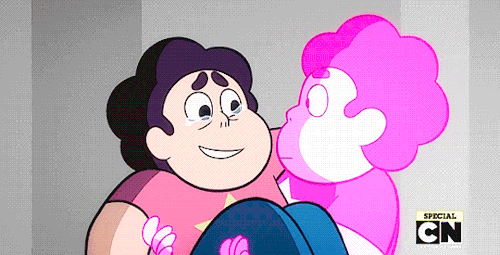
This is very pretty animation but it’s not real. Steven looks happy hugging Steven but self-love doesn’t ultimately get you that.
That’s all based on the premise that what he’s encouraging them to do is actually good, and will make them happy, and will help them love better. And it just won’t. Not in real life. That’s not how any of this works. Self-love is just self-obsession. And that is a sure-fire way to hurt you, and everyone around you.
You’ll never be free by choosing to run to a worse master. You’ll never be satisfied with your crappy attempts at loving yourself, because you were made to be loved flawlessly and forever by someone who is Love Himself.
And choosing to identify with your imperfections doesn’t make you uniquely you. It just makes you exactly like every other human being marching in the same line since the Fall.
White Diamond’s not relational. She’s up high and distant. That’s not God. He made you to be in relationship with Him. He loves you, totally and perfectly, and He proved it by sacrificing for You.
So yeah. That’s the problem with Steven Universe. Come get me, SU fans.
634 notes
·
View notes
Text
sorry to come back to this, but basically I’m saying, music can offer a change in emotions. But so can alchohol. So can drugs. So can taking a walk outside or watching a funny reel or getting hugged. Those things can all give you a temporary change of feeling—
—but you have to take the teeth out of the dark-thoughts-tiger. You have to figure out where that darkness is coming from, what is it’s root, and then you have to disarm it with Truth. Real, objective, unchanging, eternal truth. If you still have the dark thoughts after you think you’ve done that, then you didn’t actually disarm it with real Truth.
Once you’ve done that, then the dark-thoughts-tiger has no teeth. It can keep gnawing and pestering you for the rest of your life, but it’ll be significantly less powerful. The real threat will be neutralized. The light will have come in and there’s no putting it out. That’s all I’m saying.
Of course, I’m also saying Jesus is the Way, the Truth, and the Life. He is the Light of the World. (Not the religious Meme Figure of the West; the actual historical Jesus of Nazareth, who was God incarnate, and you can get to know Him without anyone else’s input by reading the Bible. )
He is the only love that really will always be there, never exasperated, never impatient with you, never letting go of you no matter how often you slide backward into the dark thoughts. Never giving up. Always there, never changing or getting tired of you. The only One in your life who really knows every thought you have, and understands them down to their bedrock, even better than you do—because He made you, and He knows everything. And still loves you. He’s also the only purpose in this life worth living for. He’s the only Truth that can be found in anything good or true. He’s the only answer for the depravity that you notice around you. He’s the only thing that can overcome—not just distract you from, not just inform you about, not just rescue you out of—but overcome any abuse, trauma, or neglect that has been swallowing up your identity. He can make those things seem powerless, because they are powerless, because He is more powerful than they are. He can make you new. He can make you want things again—good things, not just any things. He can make you care about Him even though you have never had any interest in eternity or God before.
I’m going to talk about something potentially suicide-related, so watch out.
Music can’t save you.
I keep seeing that all over the place—seriously, all over the place, not just from actual musicians— and I feel like someone needed to say it.
All you’re really claiming when you say “music saved me” is:
Music has a powerful effect.
During a time in my life where I felt like giving up, that powerful effect changed what I was feeling so that I did not give up.
Okay those two things are true, but let’s take a step back for a second.
If you’re lost in the woods and considering giving up, sitting down, and letting yourself starve or be eaten by wild animals, a bird could have the same impact. You might look up, see a colorful shape flying through the trees, and decide to follow it. Now you’re moving. Now you’re doing something, instead of giving up—regardless of whether or not you can keep up with the bird, regardless of where it’s leading you. So sure, that is a good thing. But it’s only temporary, a bandaid solution to your problem. Even if it leads you to water, or shelter, you’re not “saved.”
You’re not “saved” until you’re no longer lost, no longer in the woods. You have to get back to your home. You have to get back to a place where you know where you are in the world, and how to get what you need, and everything makes sense again.
It is the same way with music. Or any art.
Art can remind you of what’s good, and beautiful, and yes, true. But it is not the art that saves you. It is the truth that does the saving. The art just had a hand in reminding you of it. So it would be way more accurate to say “music helped me.” But you still have to deal with whatever it was that got you to the place where you felt like giving up. And part of that is making sure that you know what the song is saying has truth in it, and that truth actually applies to the problem you’re having, because you can lean on truth, and it’s what made the music worth anything in the first place. Otherwise, the music is just a distraction, and distractions end.
In that sense, it’s more like a tiger is stalking you through those woods. You can get away from it briefly, especially if something beautiful or good or true distracts you from the thought of laying down and letting it take you. But eventually you have to kill the tiger, or get out of the woods where it lives.
Truthfully—truthfully—a song can get you out of, or into, a state of mind and emotions. But those emotions have a source. And if you don’t get rid of the source, or neutralize the source, your songs are only going to be bloody bandages on a wound. Worse, the songs might make you start to love the sight of bloody bandages, when what you really need is disinfectant and actual healing.
I do know this from experience. I’m just saying, think about it.
#so there#not to preach#but#I can’t say anything about this topic without leading you to Jesus#When everything else that you’re hanging on to turns out to be transient and it’s a dark night and there’s nothing else to hold on to#you need to know about Him. You need to have that information in the back of your mind to reach for#He’s good#Jesus Christ#suicidal thoughts#dark thoughts#mental health#triggers#suicide triggers#the Bible#Christianity#my one comfort both in life and death
38 notes
·
View notes
Text
break the cycle. it's been "Why do I feel this way? -> is it ever going to get better? -> Wow, I'm messed up -> I'm insecure about that -> But I'll share my mess with others because the insecurity doesn't control me -> they like it & feel it too -> but if they like it because we're all messed up, then aren't I just secure in my mess? Am I afraid to get cleaned up because then they won't connect with me anymore? -> so then my insecurities do control me -> Why do I feel this way? -> is it ever going to get better? -> Wow, I'm messed up -> I'm insecure about that ->" for as long as I can remember.
Let Him break into the cycle and give you a security in Him, not in your mess. An identity in Him, not in your issues. He's got to take your hand and lead you up, step by step, growing and healing away from that cycle. The cycle shouldn't be who you are. Your support shouldn't be your support just because they have the same mess in common. You shouldn't be worried that by getting a wound healed and moving on, you're giving up your Wounded Support Group.
break the cycle by surrendering to God, who is outside of the cycle and can and does make you a new creation.
what would it be like if you stop looking so much at how you feel, and how you think, and how you are, and start talking about something other than your own psyche? Other than what your psyche has in common with others' psyches? You're so profound when you talk about your thoughts and the people who have the same kinds of thoughts as you. What would it be like if you started looking at something outside of yourself and talking about that?
#this has been me venting#pay no mind#victim mentality#the cycle#twenty one pilots#mental health#support#god#Christianity#triggers#Tyler Joseph#twentyonepilots#Clancy#kings kaleidoscope#gable price and friends#Gabriel price#Chad Gardner#Josh dun#top#backslide#tøp
41 notes
·
View notes
Text
The first two go together. They do. People might not like how they go together, but it's undeniable that they go together.
I'm just going to keep beating that horse.
I just NEED everyone to agree with me that Rey's parents are nobody. We should all agree about that. We should collectively, as an audience, say, "clearly the best idea was to have Kylo Ren be a dynastic heir to the major legends of the Force who wants to throw off his family's shadow, while his rival is nobody from nowhere who wants to belong--so we're going to stick with that."

And then, what should have happened is, Rey can finish her story by being able to say, "My parents might have abandoned me, but that doesn't mean I'm worthless." And eventually Kylo Ren can say, "My family might have been powerful, but I don't have to be," and all those other things that they can bounce off of each other as great foils.
It can keep being a good story about accepting past failures and choosing to grow beyond them.
Let's just all collectively ignore Rey Skypatine because of how silly that was. I mean. If they can just ignore the setups in the previous movie, we can ignore their choices in the conclusion. Right?? Right? Tell me I'm right
#What is everyone's deal with TLJ and TFA#I don't get the beef#nobody has explained it to me in any kind of objective or coherent or content-relevant way#Star Wars#as#very long post#The last Jedi#the force awakens#star wars sequel trilogy
2K notes
·
View notes
Note
so not to make it weird or anything, but you like the loki show? it seems kind of anti God (can explain if you want)
It might be, a little, after watching the second season. I just think it's well-done (the first season; second one's hit-or-miss.) I also like the points they make about "free" will, and "who gets to decide?"
Basically, it starts an intellectually honest conversation about free will. And it's a very, very good character study of Loki. Which I think is what the point of the show is: who is Loki, and once he understands who he is, what does he do with that?
Now. The show doesn't have much coherent to say about God, our God, the real God. It has no answer for a true higher power. He Who Remains starts out like a higher power simply because he's outside the timelines, controlling them. But he's a fallible human mortal, who had a beginning, and can be thwarted. All of that makes him not a higher power—just another super-powerful person. Then at the end of the show Loki seems higher-power-esque...but you have two problems with Loki As Higher Power. One is that he also is a fallible mortal, same as the problem with He Who Remains. (You know what I mean. He's a superpowered alien, not an eternally preexistent being outside of our reality.) But the other problem is that he's passive.
So if anything, the most anti-God thing about the show is that it has no good answer for "Okay, so everyone has a choice—even if they're not gods with every choice available, they have some wiggle room to choose. But who made the choices possible?" The show has no good answer for that question. Because it either says "a fallible tyrant made the choices possible" or it says "a passive but sort-of benevolent guy makes the choices possible--but that's all he does."
God is neither starting up the machine and then stepping back passively (Loki in the Chair)—nor a tyrant (He Who Remains.) He is better and outside of all of that.
But I really don't think the show was trying to comment on our God, the God of the Israelites and Christians. I think it was trying to comment on Loki, and because Loki starts the show thinking of himself as a god, it has to explore those themes to stay true to the character.
So. Yes, I like the first season. But that doesn't mean I can't acknowledge the problems in it. Tell me more. What do you think of the show's relationship to a commentary on the real God?
#Loki#Loki show#Loki series#Disney+#sylvie laufeydottir#sylvie#loki laufeyson#tom hiddleston#Odin#Thor#marvel#MCU#marvel cinematic universe#Christianity#free will#meta#commentary#analysis#writing
15 notes
·
View notes
Photo
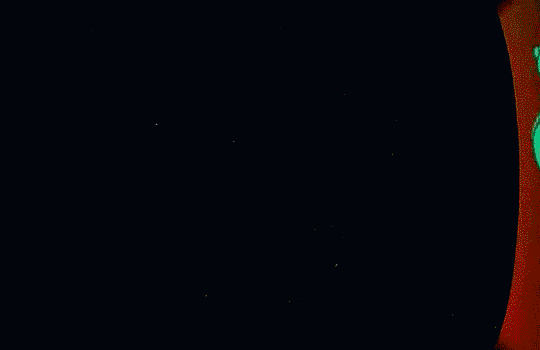


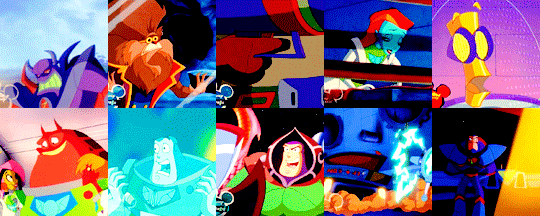
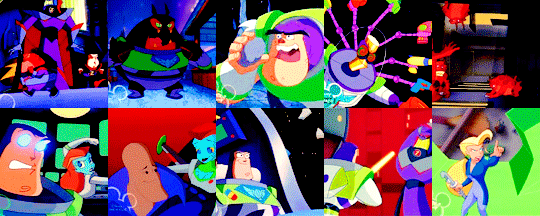

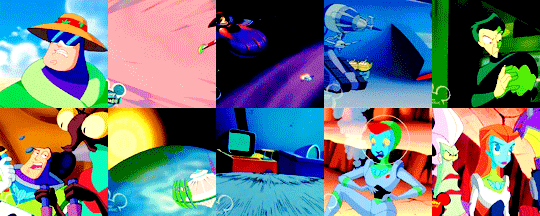

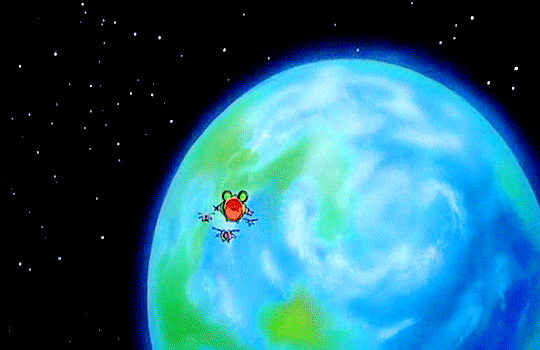
Buzz Lightyear of Star Command (August 8 2000—January 13 2001)
“The system might be stacked against us. That means we have to fight even harder for what is right. It’s not easy, but name me one worthwhile thing that is.”
329 notes
·
View notes
Text
Daisy Jones and the Six is a really good example of a story with a good message that suffers from terrible content used to communicate that good message.
It flies directly in the face of the music industry, which has always sold emotions and brokenness and the reveling-in those two things. And it wraps up with, “brokenness isn’t beautiful. It’s not what’s best for you. It’s not a badge of honor, and it’s not okay. Brokenness is brokenness, and it should be resolved when it is recognized, not wallowed in.”
The show also says “you have to be honest. Especially with yourself, about yourself. Not just for the sake of ‘making true art,’ but for the sake of being a better person and trying to fix what’s broken.” It applies that message to healing, to family, to romance, and to creativity. It especially applies it to friends and love: “I love you enough to tell you the truth.”
But it does it very dangerously with its content. And it even shoots itself in the foot. When the message of your show is “being broken isn’t a good thing,” why do you spend so much time on the indie-pretty-music-romance of brokenness? Why are the love triangle of adultery and the drug abuse the scenes that get the most attention, the prettiest music, the best acting? Why make the most beautiful-feeling parts of the show…the broken parts? When your message is “it’s actually not beautiful to be broken?”
And why have a character who is a lesbian be the one to tell Daisy that line about “love you enough to tell you the truth?” And then call her “selfish,” specifically for the way Daisy expresses Daisy’s version of love? That’s ironic, don’t you think? The character representative of a whole group of people who insist that love can be whatever you want it to be, and who refuse to be told truth because it’s not “loving?”
The show is confusing. I don’t recommend it. But if you’ve already seen it, consider that. Good message. But bad content, bad form, for that message.
9 notes
·
View notes
Note
Hello! What is your opinion and analysis of the animated film Anastasia (1997)?
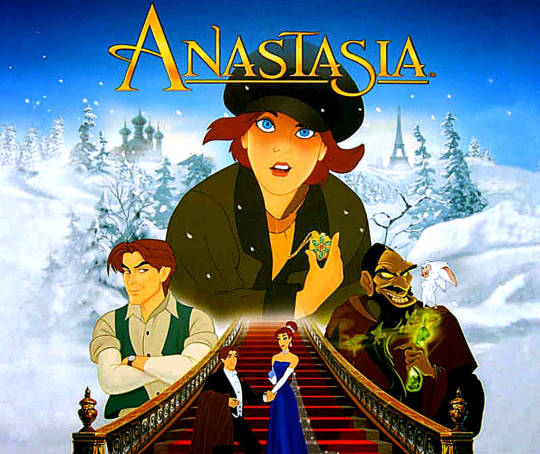
Hello! I hate to disappoint you: I never liked Anastasia. But! To be intensely fair, the last time I watched it was before the Lord got my wheels turning on “critical analysis,” and before my Formal Education.

I remember that the music was enchanting, but the animation left something to be desired. I don’t mean technically—technically the animation is flawless, because it’s Don Bluth. I mean, it was missing a good deal of appeal.
I never feel like Anastasia is actually looking at me. That’s the most visceral way I can put it. I think what I mean is, she’s so technically well animated (and so is her grandmother, and Dimitri) that moments where her facial expression could benefit from extremes or exaggeration to make me connect with her get completely lost. There’s moments like THIS:

Where I should feel the emotion coming through, she’s doing something so girlish and fun and wondrous…I should like her, and feel like I could be standing in her shoes, feeling the same emotion of looking for the magic in her surroundings because it echoes in her memories, etc…. But I don’t feel that way. I know logically that that’s what the filmmakers want me to feel—partly because the music is so good, and partly because of the context—but I don’t feel it.
And I think it’s because Anastasia is standing there with her head tilted back, her chin dawn in perfect perspective, her movements so in-proportion, that that part of my brain that animation is supposed to tap so beautifully into is just…bored. Disconnected. I can’t see her face, I can’t see her emotion, and it doesn’t linger artfully enough for me to connect with it. I mean, contrast it with this moment:

I can see Ariel’s whole face, particularly those windows-to-the-soul we call EYES, and the facial expression, though dramatic, lingers, holds it, draws it out, so that I have time to not only register the emotion but almost savor it?? Feel it myself. If that makes sense. Not to get too dramatic about it. I don’t know if I’m describing it accurately, but that’s my main problem.
I’d have to go back and watch it again to analyze it further, or even more fairly, because like I said, I haven’t seen it since the ol’ brain got quickened. How about this, I promise I’ll rewatch it with an open mind and make a post later!
11 notes
·
View notes
Text
After watching “It’s a Good Life” on The Twilight Zone, you start to realize that this whole “there’s no such thing as objective good or objective bad, morality is relative” is just self-protective. We’re just afraid of real evil. We’re just afraid of real good. Because we can’t control it. Because we didn’t decide on it.
This episode of a TV show about a boy who can and does kill you if you think anything he does is “evil” or anything he hates is “good” points out that we’d rather change the definition of good and evil if it makes us feel safe…than risk ourselves by confronting Real Evil, or protecting Real Good.
The townspeople would rather say murdering dogs and children is Good, and life without food or music is Good, than stand up to the terrifying Real Evil.
Go watch that episode, where they say “It’s a Good Life” as their crops freeze and their music and art disappears—then come tell me that “everyone’s definition of good and evil is what’s right for them.”
#Anthony twilight zone#Anthony#twilight zone#the twilight zone#rod stewart#it’s a good life#tower of terror#moral relativism#morality#classic tv
30 notes
·
View notes
Text
I will say I just had to babysit three kids (ages 5-9) and we watched Treasure Planet and between the accents and the nuance they could not follow the story at all. 🤷♀️ food for thought
#although my Middle aged self was going “skill issue” before i remembered “these are children”#Then also remembered that Treasure Planet was the only movie I ever saw in theaters that we walked out in the middle of.#specifically because my mom couldn't get us to sit still which never happened#treasure planet#Disney#once i was a little philistine myself#me
11 notes
·
View notes
Text
Twenty One Pilots' Backslide
is making me lose my mind 🙃
7 notes
·
View notes
Text
Finding out that Tolkien didn't like Dune makes me so happy. Good for you Mr. Tolkien, Dune sucks.
15 notes
·
View notes
Text
In a nutshell: Lady & the Tramp says that there is value in loyalty to someone you love, regardless of how important you are to them—and so is Bolt.
The Lion King says you have an identity that you don't get to define for yourself; you only get to accept it or reject it; the sooner you accept it, the better off everything will be—and that's what Moana says (much more imperfectly,) too.
(now, The Lion King is really more epic in scale, and it's more about who a King's Son, a selfless leader, is supposed to be—while Moana shades itself waaay too much with notes of "everyone gets to make themselves whatever they want." But broad-strokes, Moana is still saying something very similar to the Lion King.)
Basically, Mufasa's ghost insisting to Simba that he is "more than what he has become" implies that, even though Simba chose to be a shaggy hippie hiding in the jungle, it was the wrong choice. He wasn't actually changing who he was—because he can't do that—he was just playing pretend. Warping and twisting and hiding his true identity under layers of denial and the illusion of "choice." And the fact that it's coming from his father, and that unique relationship where a son is a Little Version of the father, weaves a whole new intrinsic layer of Undeniable Identity Outside Yourself into it.
The more you look into that aspect of it, the more Moana's faults start to stand out. But they're not many, and like I said...broad-strokes, they have the same bones. Te Fiti had a true self she was forgetting, instead of the one she "chose." But, Moana tells Maui he makes himself whoever he wants to be. Anyway.
#I could say more but I'm extraordinarily tired right now#maybe I'll come back and reblog later#sorry#😅#Moana#bolt#lady and the tramp#the lion king
29 notes
·
View notes
Text
Things that are important: studying the Titanic as she continues to deteriorate and is reclaimed by the sea
Things that are not important: making the Titanic a tourist attraction
190 notes
·
View notes
Text
Also I'd just like to point out that Bolt is the modern Lady & the Tramp and Moana is the modern Lion King, pull on the thread if you don't understand why
#Bolt#lady & the tramp#Moana#the lion king#Disney#Disney can be good by remembering what it used to do#and these amovods are proof#wish is proof of the alternative which leads to bad movies#can't stop coming for wish
25 notes
·
View notes

